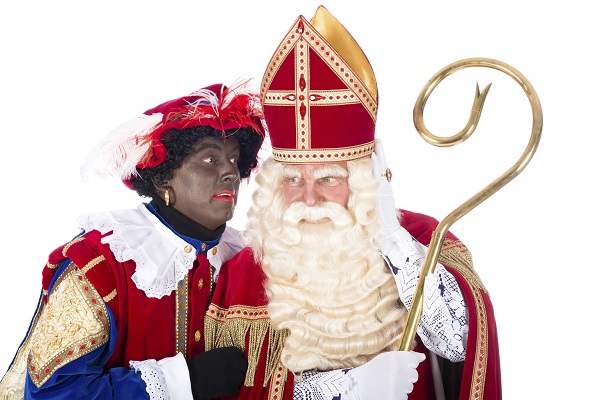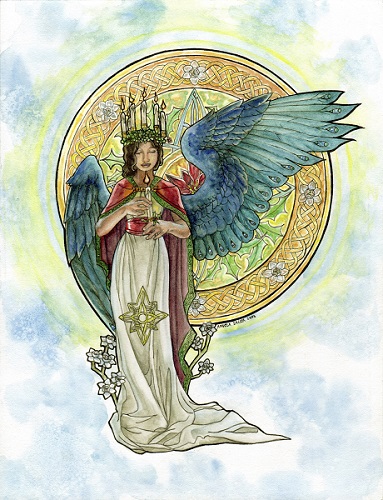Whether you are spending Christmas in another European country this year, or you just like to learn how other nations celebrate the festive period, this blog post will tell you all you need to know. British traditions involve putting up the tree, leaving out treats for Santa, and eating as much food as humanly possible, but what does Christmas involve for the people of countries such as Lithuania, The Netherlands and Greece?
Czech Republic

If you are planning a festive Prague city break then you may want to ensure you are out there for the 24th and not just the 25th and beyond. This is because the day we know as Christmas Eve is referred to as Štědrý den (Generous Day) in the Czech Republic and this is traditionally when gifts are exchanged. At the end of dinner, children will wait with anticipation for the sound of the Christmas bell which signifies that Baby Jesus has passed by. They then all rush to open their presents.
Anyone cutting an apple during their trip to the Czech Republic at Christmas should do it horizontally through the middle. If a clear star appears in the core it is said to be good luck for the following year, whilst a deformed star could mean illness and a cross: death.
Lithuania
Christmas Eve is also an important day to Lithuanians. If, during your time in Vilnius, you are invited to a Kūčios you should feel very honoured as this is a special family meal which signifies the start of Christmas. The Kūčios is typically made up of 12 dishes, one for each of Jesus's disciples, and the entire meal is usually meat free.
Families gather and often set places at the table for those who cannot be with them or who have passed away during the last twelve months. Once the first stars can be seen in the night's sky, the meal will commence with the handing out of wafers to each person. To represent the manger in which the Baby Jesus was placed, the table is covered with straw and then a tablecloth is laid over the top. Everyone is then free to pull a piece of straw out; long pieces signify a long life, short pieces mean a short life and thick pieces mean life will be rich and fulfilling.
The Netherlands

The most important day in the Dutch Christmas calendar has already passed. The 5th of December is the day on which parties are hosted all over the Netherlands as children anticipate the arrival of Sinterklaas on St. Nicholas's Day. During these events, presents are handed out in a similar way to the British tradition of Secret Santa and these are accompanied by cryptic poems that give clues as to who the gift-giver might be.
The next day Sinterklaas arrives in one Dutch city, having travelled by boat, and is greeted by rapturous celebrations. Inside all the homes, children rush to see if presents or sweets have been placed inside the shoes that they left on the windowsill, as this is the true sign that Sinterklaas has been. Curiously, children are told that if they have misbehaved during the year they will be collected up into a sack by Sinterklaas's helper 'Black Peter' and taken to Spain for rehabilitation.
Greece
In Greece, St Nicholas is the patron saint of sailors and so, along with a giant Christmas tree, a large boat is erected in the city of Thessaloniki for the festive period. Children also carry model boats with them when they go carolling on Christmas Eve; something they are often rewarded for with nuts, sweets or money by the people whose houses they call on.
Greeks believe that between the 25th of December and 6th of January (the twelve days of Christmas) their homes may be plagued by evil spirits known as Killantzaroi. These sprites will cause milk to go off and put out fires, but they are said to be kept away when each room is cleansed with Holy Water. A traditional Greek Christmas meal will include pork or lamb that is roasted on a spit and served with Spanakopita; a pie of spinach and cheese.
Sweden

Much of the Christmas celebrations in Sweden, and other Scandinavian countries, are focused on the 13th of December. This is St. Lucia's day; a Christian girl who was killed for her beliefs in 304AD. As her name means 'light', girls all over Sweden will dress in white robes and where a crown of candles on their heads. A national Lucia is chosen and schools and towns will also choose a representative to play the part of the girl in the celebrations that they hold.
Another day which is a highlight of the festive calendar in Sweden is the 24th of December. If you are enjoying a city break in Stockholm at this time you may be luckily enough to experience a feast that it known as 'julbord'. This is a gigantic buffet which is served at lunchtime. It features a plethora of sweet and savoury items including fish, cold meats, potatoes and ginger snaps known as pepparkakor biscuits.
It is not too late to book a Christmas break with Fred. Holidays. Whether you are looking to enjoy one of the many European Christmas markets we have available or you want to experience some of the festive traditions mentioned above; we can tailor-make a trip to your requirements.










